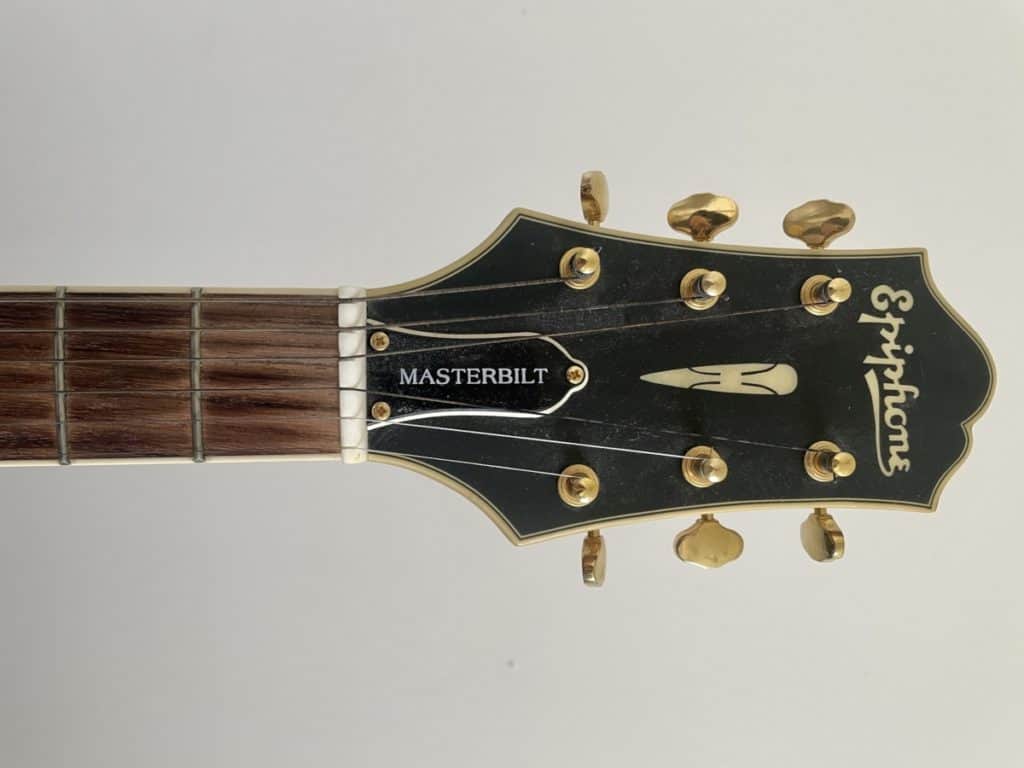Today I am going to talk about whether guitar strings can break on their own.
In my many years as a professional guitarist, I have learned a lot about what causes a guitar string to break and they all have to do with the qualities of the string, the environment, and how you treat the string.
Let’s take a closer look.
Do Guitar Strings Break on their Own?

It is very unlikely for guitar strings to break on their own while sitting untouched. Guitar strings, especially metal ones, are quite resilient and tend to break only when stressed. However, it is possible for strings to break on their own, due to extreme temperatures, humidity, or sharp edges on your guitar.
Personally, I have never had a guitar string break on its own.
However, if this has happened to you, I think the most likely cause is extremely high heat exposure.
If that’s not the cause, then you may also have a humidity problem. Humidity can cause the wood inside the neck and body of a guitar to expand or contract, and this could alter the string tension to the point where they snap.
If you are expecting high heat or humidity exposure for your guitar, consider slightly loosening your guitar strings beforehand.
Another potential issue could be sharp edges that are touching the strings, like on the bridge or nut of your guitar.
Again, all of these issues are quite unlikely, and they fall under a broader category of issues that can weaken guitar strings (whether or not they’re being played). Let’s take a look at a more complete list…
Factors That Weaken Guitar Strings
Here are some factors that weaken guitar strings. These things are important to keep in mind if you want to extend the life of your strings.
1) Wear
The primary thing that weakens guitar strings is the wear that results from playing. After significant use, you will likely see that the frets of your guitar have left marks or indents along your strings. Guitar strings are thin and take a fair amount of use. They cannot be expected to last forever.
2) Intense Playing
In my experience, strings are most likely to break during intense playing. Intense bending, picking, and strumming put a lot of tension on the strings. These techniques tend to weaken the strings at the points where they meet the bridge and nut.
3) Impurities
Even if you wash your hands before playing, you will leave some sweat, oil, or dirt on the strings. Over time this weakens the strings and makes them sound duller. Sweat has an oxidizing effect on metal, so the strings wear down. Oil will hold dust and dirt on the strings making them stiff and inflexible.
4) Age
If a guitar sits unplayed for a long time, its strings may become brittle. If the strings have not flexed or vibrated in a long time, they will likely be stiff and dirty. If strings are noticeably dusty, wipe each one individually with a damp, warm cloth. Play gently for a while before trying any intense bends or other techniques.
5) Improperly Changed Strings
You need to make sure you’re installing each new set of strings properly. New strings typically come wrapped in circles. Unravel each one careful as to not bend or crease them.
And proper string fastening technique will depend on your guitar model. In any case, allow each string to wind around its tuning post a few times. Avoid making any kinks in the strings, that’s the sort of issue that could cause a set of strings to break.
Tips for Preventing Snapped Guitar Strings
Here are some tips for getting the longest use out of your strings. You don’t want your strings to snap, especially during a performance or recording session.
1) Keep Strings Clean
After each playing session, I recommend wiping your strings down with a clean dry cloth. This minimizes the oxidation and build up that makes them snap more easily. If you notice that your strings look dark, dirty, or crusty, they should be changed.
2) Proper Storage
I recommend keeping your guitar in a hard case that supports the neck and body of your guitar. A moulded case is ideal. Avoid storing your guitar in an excessively dry or humid environment. Avoid prolonged exposure to direct sunlight to protect the wood and finish of you guitar.
3) Manage Temperature
Keep your guitar at a normal room temperature if possible. If you must take your guitar into an especially high or low temperature environment, allow the guitar to adjust to the extreme temperature before removing its from its case. Detune the strings slightly before exposing the guitar to high temperatures.
4) Consider Changing String Gauge (Thickness)
The thicker a string is, the longer it tends to last. If you break strings often, consider using a thicker set of strings. Thicker strings are also a bit more challenging to play (press down), and bend. They also have a heavier tone.
5) Do Not Over Tighten Your Strings
Most sets of guitar strings are designed to be used for standard tuning. This implies that they should be used with specific string tensions. You may experiment with alternate tunings, but keep in mind that tuning the strings higher requires additional tension. Too much tension will snap a string.
6) Change Your Strings
A guitar string can only take so much use. It is best to change them regularly before they are on their last leg, so to speak. This will reduce the chances of breaking a string at a crucial moment such as during a performance or recording session.
Changing your strings regularly also improves the clarity and brightness of your tone and the accuracy of your intonation, as dirty, dented strings sound duller and less accurate.
How Long Do Guitar Strings Last?
Guitar strings usually last 2-6 months before they need to be changed, assuming regular playing. Exactly how long your strings will last depends on your playing style, how often you play, and how well you care for your strings.
Personally, I play very frequently and I change my strings about every two months. Since starting this habit, I don’t think I’ve broken a single string.
